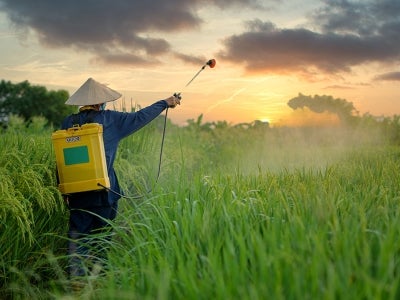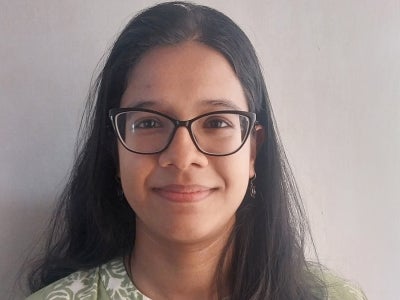GEF CEO Naoko Ishii addresses 2014 Delhi Sustainable Development Summit
Emphasizes the importance of integrated approaches to tackle global energy, water and food security challenges.
NEW DELHI, India—Demand for energy, water and food stand to increase sharply in the coming decades in step with broader socioeconomic trends such as population growth, expanding cities, and a rapidly growing global middle class. These trends will put increasing pressure on our natural capital. For example, energy demand in the developing world is growing fast, but 47 percent of all of global water-reliant energy production takes place in areas of significant water stress. A country like India produces close to 66 percent of its water-reliant energy in areas of medium to extremely high water stress. These trends, coupled with ongoing climate change and reduction in the flow of services that ecosystems provide, can seriously compromise national and regional food and water security. Interventions must be built on the existing nexus between energy, water and food production.
GEF CEO Naoko Ishii said it is appropriate that this years’ Delhi Sustainable Development Summit (DSDS), organized by the Energy and Resources Institute in New Delhi, India, is focusing on “Attaining Energy, Water and Food Security for All.”
“Sectoral development needs are often blind to one another and sometimes neglect local and national contexts in favor of cookie-cutter approaches,” Ishii, who addressed the summit said. “Hence bringing to the forefront of the sustainable development agenda the energy-water-food nexus and putting natural capital at the center of the discussion can open a window to foster integrated approaches that will enhance the sustainability and resilience of ecosystems on which all life depend.”
The GEF, through its role as financial mechanism for multiple global environmental conventions, can play a key role in breaking the silos that often dictate energy, water and food policies. The energy-water-food nexus has multiple impacts across GEF programs: from promoting renewable energy and energy efficiency, to biodiversity conservation, sustainable land and water management, including conjunctive management of groundwater resources, sustainable fisheries, and climate change adaptation. Many examples from the GEF-funded portfolio have shown results and outcomes that clearly illustrate how integration of environment and development priorities across landscapes and sectors and a focus on the value of natural capital, can lead to more sustainability in the energy-water-food nexus.

11130920436_0ca07d494e_z.jpg
Resource map in Katna
Through a partnership with the Government of India, the GEF, and the World Bank, the Uttarakhand State Government is implementing an innovative program that restores sustainable ecosystem functions in the fragile watersheds, thereby laying the foundation for improving income, food, and livelihood security. The program has helped create a water surplus, which has allowed the introduction of high-value vegetable crops in the watersheds, including twenty different varieties of off-season vegetables, leading to higher income levels. Simultaneously, the program has introduced briquetting techniques which provided an alternative source of energy for cooking and heating, reducing a households’ dependency on firewood by 22 percent, and reducing the time spent on fuel wood collection.

11131038574_c9e9ba9ff2_z.jpg
Ditch at an intervention site in Uttarakhand

briqutte.jpeg
Woman making pine briquettes in Thaladi
The DSDS is an annual event that engages global partners to exchange knowledge and strategize on bold visions for development plans that are deeply rooted in sustainability for the benefit of current and future generations. The summit brings together a significant congregation of world political, economic, business, and academic leaders to deliberate on issues related to sustainable development. This year over 300 delegates, including heads of state, executives of multilateral and bilateral organizations, and senior government representatives, corporate CEOs, and representatives of Civil Society Organizations came together in Delhi to discuss corporate actions to attain energy, water and food security for all. To learn more about the Summit, go to: http://dsds.teriin.org/2014/index.php.
About the Global Environment Facility
The Global Environment Facility (GEF) unites 183 countries in partnership with international institutions, civil society organizations (CSOs), and the private sector to address global environmental issues while supporting national sustainable development initiatives. An independently operating financial organization, the GEF provides grants for projects related to biodiversity, climate change, international waters, land degradation, the ozone layer, and persistent organic pollutants.
Since 1991, the GEF has achieved a strong track record with developing countries and countries with economies in transition, providing $11.5 billion in grants and leveraging $57 billion in co-financing for over 3,215 projects in over 165 countries. Through its Small Grants Programme (SGP), the GEF has also made more than 16,030 small grants directly to civil society and community based organizations, totaling $653.2 million.
Contact: Christian Hofer, Senior Communications Officer, GEF. chofer@thegef.org


